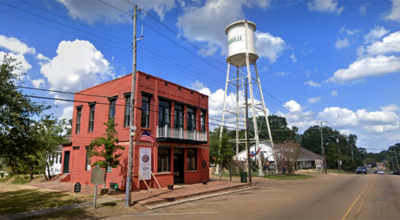‘The staff is worn out,’ Mississippi hospital CEO says regarding ongoing COVID-19 fight
Published 4:24 pm Tuesday, July 14, 2020
With surging numbers of COVID-19 coronavirus cases, hospitals across Mississippi are getting tight and their staffs are getting tired hospital leaders in Southwest Mississippi said Monday.
“They have been doing this since March and it is not a pleasant environment to have to dress down and dress out so that is the real challenge. The staff is worn out,” Merit Health Natchez CEO Lance Boyd told members of the City of Natchez’s COVID-19 Task Force on Monday.
The Natchez hospital, which serves as a hub for surrounding areas including nearby areas of Louisiana, is not at full capacity, Boyd said, but like many hospitals, a combination of fatigue and staff who have contracted the virus are starting to take a toll.
“The most (COVID-19 patients) we have had at any one time here is 19 and that was back in April but we had nine on the ventilators at that time so it is hard to put a number on it, but we do know if we doubled our numbers right now that would be a very stressful, almost a fracture point for us because the staff is worn out,” Boyd said.
The Natchez hospital on Monday had 10 COVID-19 patients, none of which currently required a ventilator, he said.
“We did transfer two out this weekend from the ER that were positive. We sent those to high-level care,” Boyd said. “They had some pretty serious other issues going on but currently, we sit at 10.”
Patients are only one problem, the other is staff members who contract the virus.
Boyd said the Natchez hospital had several workers out with the virus.
“It may or may not be because of their work environment,” Boyd said. “As best we can tell in the general community it is growing like crazy so these folks may or may not be getting it at work. Regardless they are not able to work once they contract it.”
And staff shortages at a hospital can cause a ripple effect, he said.
“Southwest Hospital in McComb has been on diversion since last week, meaning they are not taking any additional patients because they had a numerous amount of nurses who were out with COVID and they did not have the staff to take care of the patients that needed the help,” Boyd said.
“Once McComb gets shutdown then the patients are rerouted here, then to Brookhaven,” he said.
“You can see how that can overwhelm the system. Employee cases are a concern. Not just that they can catch it here but they can catch it at the market as well.”
Adams County had 71 active COVID-19 cases in the county as of Monday the county reported.
A Natchez physician, Dr. Lee England, who chairs the city’s task force, said the state’s workers who are conducting contract tracing for people potentially exposed to COVID-19 are also becoming overwhelmed as cases rapidly mount.
“They can do 50 per day but they have got a load of 300 to do and that is as of Friday,” England said. “They are getting overwhelmed.”
England said it is important for people to wear masks to help curtail the spread of COVID-19.
“It appears to me to really have a functioning economy in this environment, everybody is going to have to wear the masks and if we don’t we will falter with the economy because of employees that have to be quarantined and cases that take people out of work and nothing will function,” England said. “That becomes increasingly important now.”
The alternative is to face another lockdown similar to the one enacted earlier in the year.
“A lockdown works,” England said. “We’ve seen that but nobody wants that. On the other hand if things get really bad people will lock themselves down even without a government order. They will be scared enough to not want to go out.”
On Tuesday, Mississippi State Health Officer Dr. Thomas Dobbs said 10 hospitals in Mississippi had no available ICU beds.
“It’s become a real issue,” Dobbs said. “It’s harming patient care.”
Dobbs said 25 hospitals in Mississippi have less than 25 percent capacity.
“We anticipate ongoing tightness in our hospital system,” he said.






